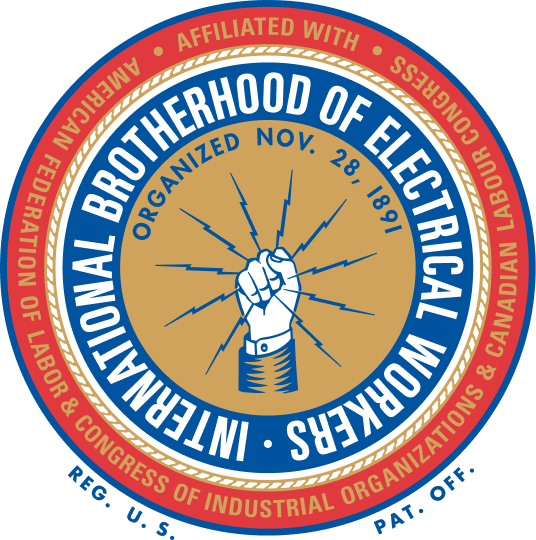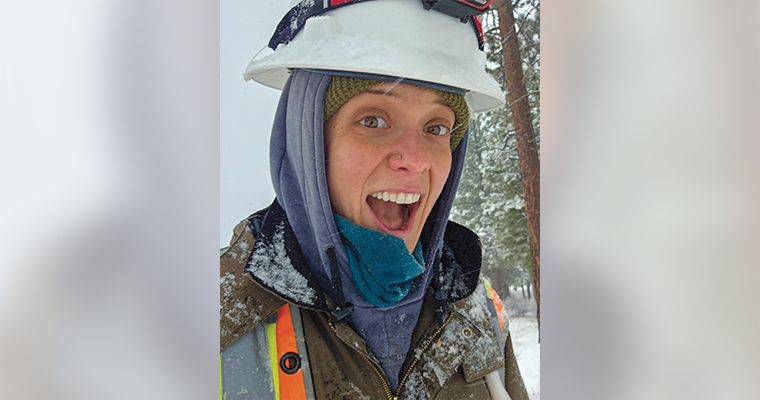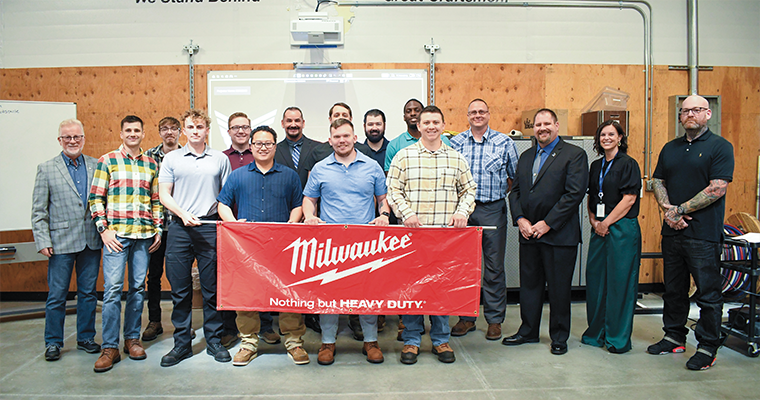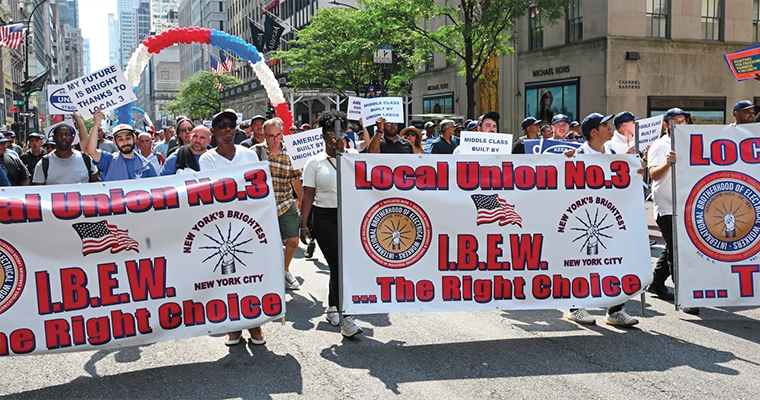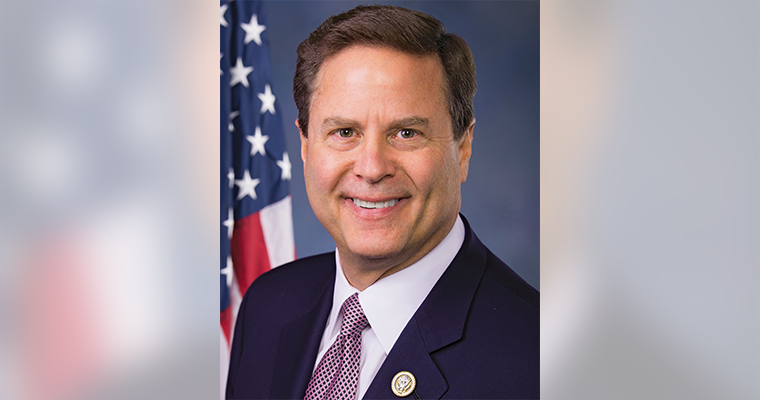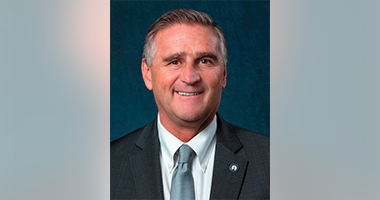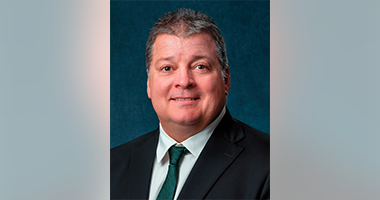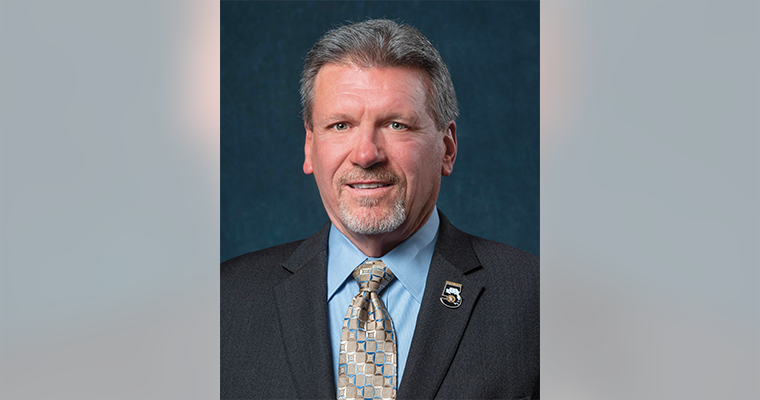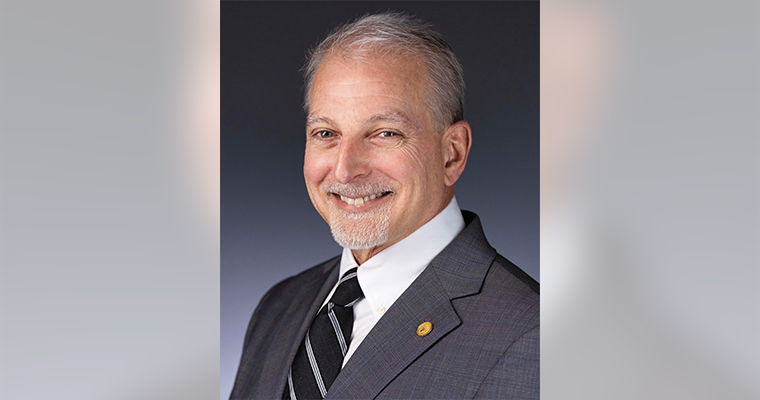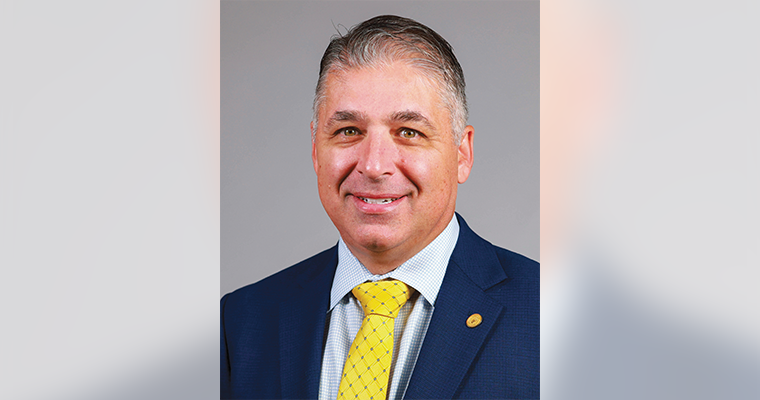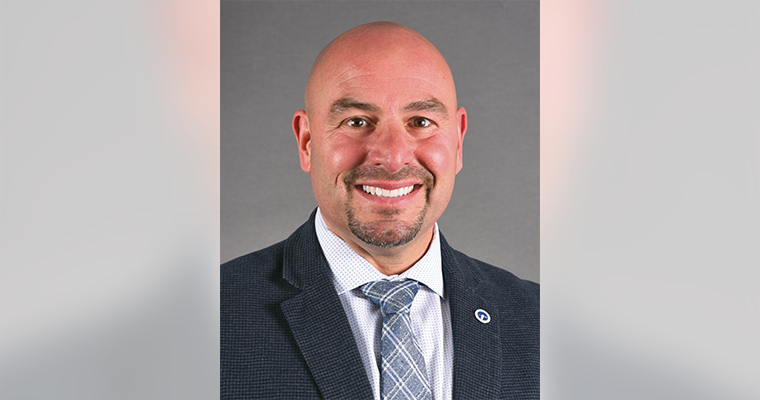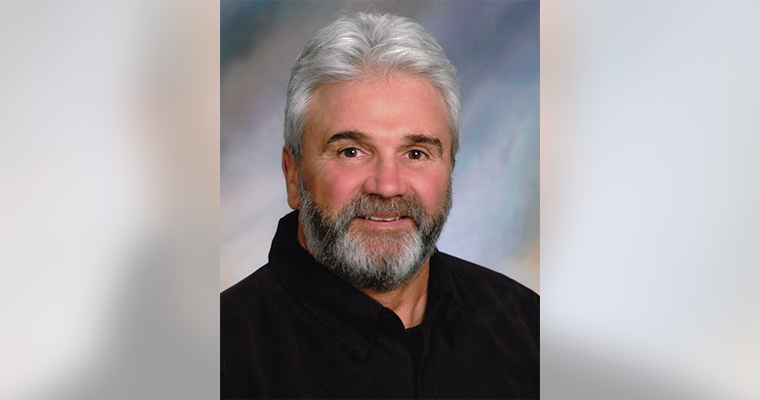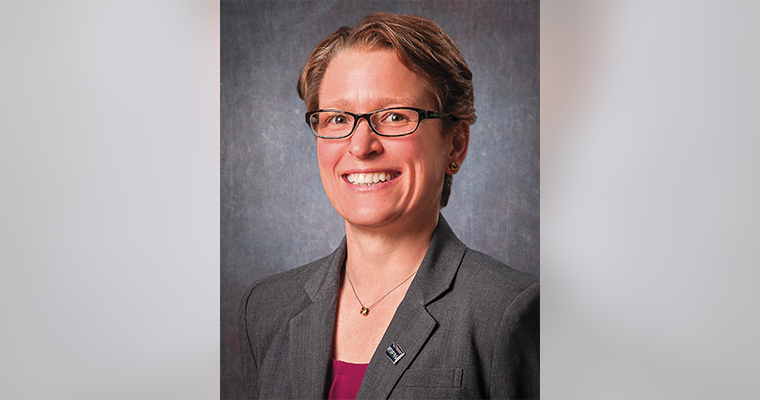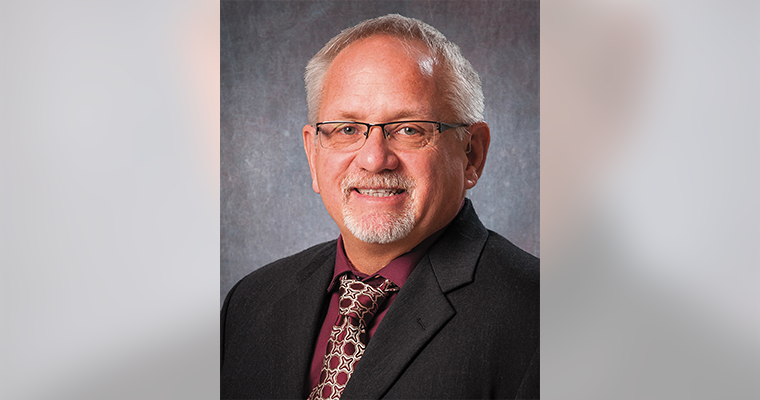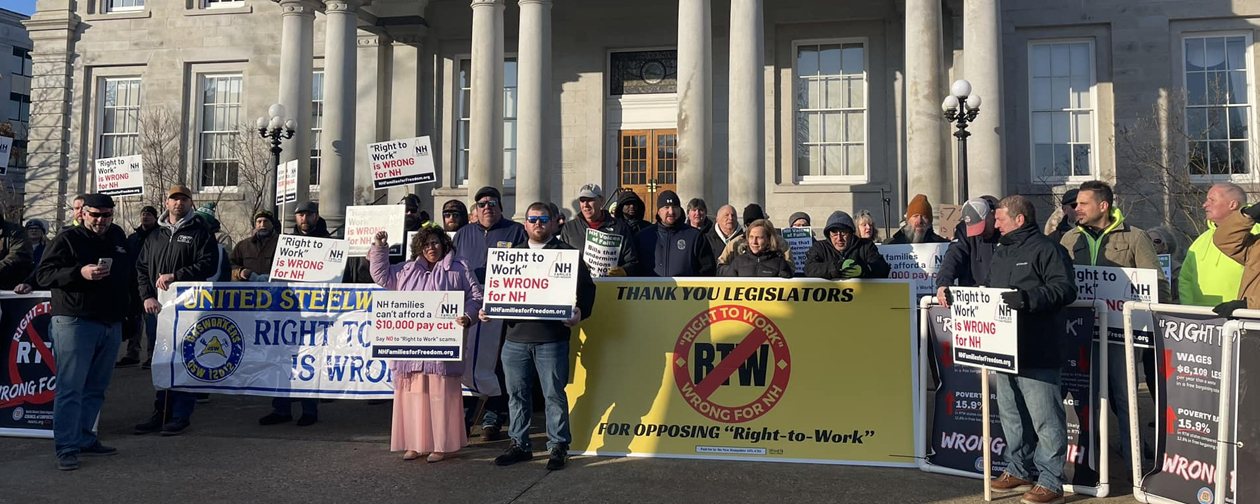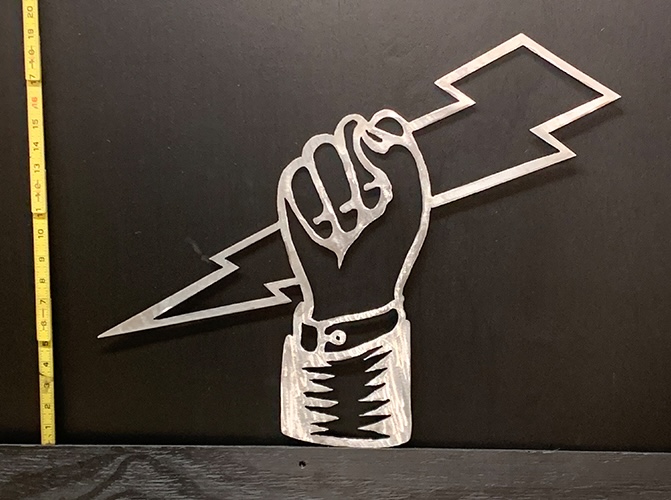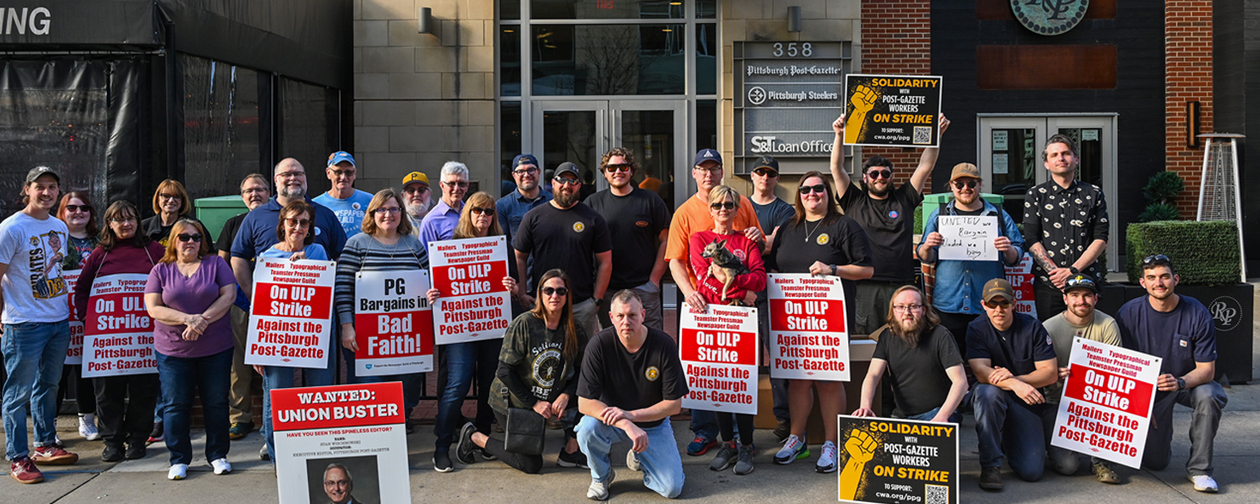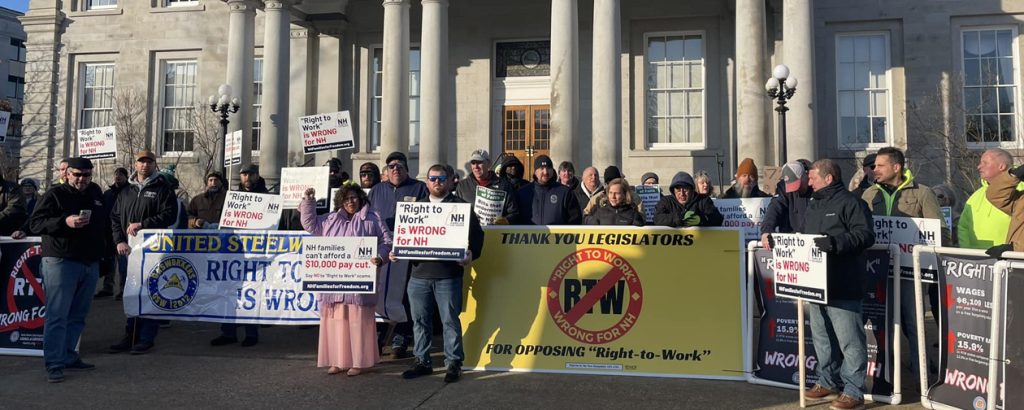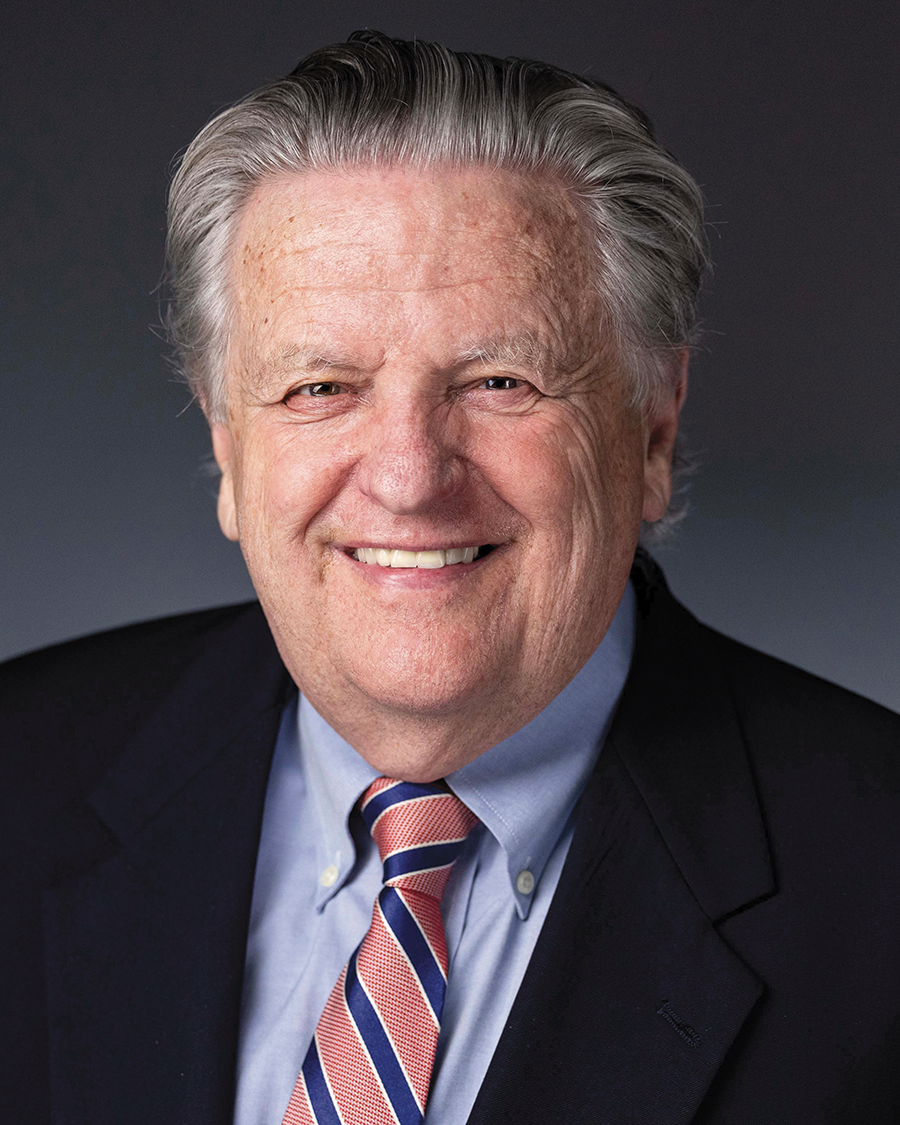
RETIRED — After 20 years of service on the International Executive Council, Myles Calvey is stepping down. He will remain business manager of Boston Local 2222 and be replaced on the IEC by Boston Local 103 Business Manager Lou Antonellis.
Calvey started working at New England Telephone in 1968 while a senior in high school. Employees chose to disband their independent local three years later and voted to join the IBEW in late 1970. Calvey, who had moved from office gofer to the splicing and installation department, was initiated into Local 2222 in early 1971.
What Calvey jokingly calls his “illustrious military career” began in 1969, when he was drafted into the National Guard.
“I was a cook, and I’m pretty sure no one died from my food,” he said. He said he was never deployed farther than Somerville, Mass., where he grew up, which suited him fine.
“I am a pacifist with a capital P,” he said.
For the next two decades, when he wasn’t feeding the reserves, Calvey installed phone service in homes and businesses across Massachusetts.
“I loved working with the tools,” he said.
But in 1984, the breakup of the Bell monopoly over the U.S. telecommunications infrastructure came to New England, and everything changed for Calvey and the industry.
Long-distance service was shifted to AT&T and opened to competition. Local calls were split among nine companies collectively called the Baby Bells.
Calvey was assigned to AT&T, but most of the membership of Local 2222 was still with the Baby Bell NYNEX and Calvey fought to be transferred there with an eye on running again for the executive board.
“I ran in 1982 and was trounced,” he said. “But I ran again in 1985 and won a seat on the executive board and was elected vice president of the local.”
“I get on my hands and knees and thank God for the IBEW.”
– Local 2222 Business Manager Myles Calvey, who is stepping down from the IEC
Three years later, he took over as business manager.
That year, he said, the local had 6,824 members. But after three decades of consolidation, breakups, technological revolution and private equity raids, the local was decimated.
The worst years, he said, were in the mid-’90s when the computer revolution fully arrived.
“They called it ‘process reengineering,’” he said. “Between 1995 and 2000, we lost nearly all our support staff. When I started, we had 1,000 clerks, today maybe 150.”
Local 2222 has just over 1,300 members today, and only 900 or so work for the successor to New England Telephone, Verizon.
Calvey was elected chairman of telecom System Council T-6, which covers all of New England, in 1994, a position he still holds. He was also chair of Telecom Council TCC-2, which brings together all locals with members working at Verizon, from 2001 until about 2008.
Decades of turbulence reached bottom during the NYNEX strike of 1989. At least 60,000 union workers — most from the system council but some from the Communications Workers of America — walked off the job for more than four months.
“The whole relationship with the company was knockdown. Everything was a fight,” he said.
The company wanted workers and retirees to start paying for health care. The unions were able to fight that off for nearly 20 years. But the strike was long, dark and eventually deadly. An IBEW member who walked the picket during the day and worked in a factory at night was electrocuted and a CWA member walking the picket line was run over and killed by the daughter of a manager.
“It was a war zone. It changed us forever. It changed all of labor relations in the telecoms,” he said. “The company finally came to us and asked how we stop this. We told them: ‘Fire the bad managers. Change the bad policies.’ And we started to rebuild the relationship.”
The relationship had some ups and more downs, and what followed was a procession of layoffs and redundancies. Today, the system council represents about 2,000 workers.
In 2005, International President Edwin D. Hill asked Calvey if he would serve on the International Executive Council. He has been grateful ever since.
“I’m a telephone guy. I can’t pretend I was so astute about the IBEW. It really opened my eyes, and I served with legends of this Brotherhood,” he said.
Calvey said he is retiring from the IEC so Antonellis has time to make an impact before the International Convention in 2026 — and leaving the IEC after a round 20 years makes sense.
“I get on my hands and knees and thank God for the IBEW. I couldn’t have asked for a better life,” he said.
